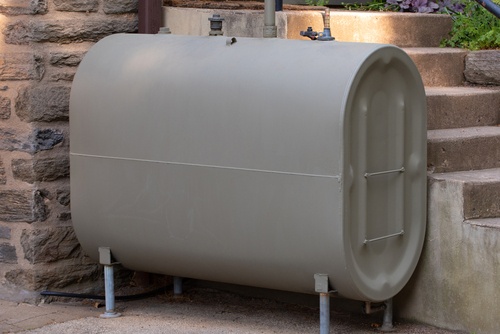
Find out all you need to know about the heating oil tank in your home
 Heating oil is an outstanding way to keep your Western New York home warm, safe, and comfortable. With reliable heating oil delivery from NOCO, you’ll have peace of mind no matter what Mother Nature or the lake effect sends our way this winter.
Heating oil is an outstanding way to keep your Western New York home warm, safe, and comfortable. With reliable heating oil delivery from NOCO, you’ll have peace of mind no matter what Mother Nature or the lake effect sends our way this winter.
But to enjoy the benefits of heating oil, you need a heating oil tank. We’ve put together some commonly asked questions people have about heating oil tanks so you can be more informed.
What size heating oil tank should I get?
The most common sizes of heating oil tanks are 275 and 340 gallons, which are sufficient for most residential usage.
How are today’s heating oil tanks different?
Today’s heating oil tanks are built with superior materials and features designed to prevent leaks and overfilling. Some are double-walled, with a weld-free galvanized steel exterior and polyethylene interior tank designed to prevent leaks. Single-wall tanks are affordable and can be used indoors and outside.
What type of heating oil tank should I install?
We strongly urge our customers to get aboveground heating oil tanks for several reasons.
The first reason is that you can detect leaks in an aboveground heating oil tank where you cannot in an underground tank.
If you plan on selling your home in the future, having an underground oil tank will make that process more difficult because homebuyers are understandably hesitant to taking on the financial and environmental risks posed by underground oil tanks.
How do I know if my heating oil tank is corroding?
We encourage our customers to regularly inspect their heating oil tank. The signs of corrosion you can see are:
- condensation or weeping on the outside of the tank long after the tank has been filled
- pinhole leaks
- blistering on the tank’s exterior, especially along the bottom
- rust
If you see any of these, contact us right away and we’ll come take a look at it.
How can I prevent corrosion in my heating oil tank?
Empty space inside your heating oil tank creates the biggest danger for your heating oil tank, especially in warmer weather. Condensation forms on the bare walls in the empty part of the tank, and that water drips off the walls. Because water is heavier than heating oil, the water sinks to the bottom. Once there, it creates a perfect environment for the growth of bacteria that leads to the development of sediment. That sediment is what starts corroding your tank from the inside out.
Because condensation develops easier in warmer weather, we recommend that our customers top off their heating oil tank at the end of the heating season so there are no bare walls to allow for condensation.
Does my homeowner’s insurance cover heating oil tank failure?
Unfortunately, virtually no homeowner’s insurance policies cover remediation costs for heating oil tank failure.
Earlier this year, a couple near Boston faced the possibility of losing their home after a tank leak in their basement resulted in remediation costs as high as $200,000. We recommend that you talk with your insurance provider about possibilities for separate tank coverage.
Become a NOCO customer and get the most reliable heating oil delivery in Western New York!

